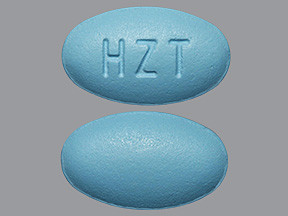IBUPROFEN/FAMOTIDINE - ORAL
PHONETIC PRONUNCIATION: (EYE-bue-PROE-fen/fam-OH-ti-deen)
COMMON BRAND NAME(S): Duexis
GENERIC NAME(S): ibuprofen/famotidine
Uses
USES: This combination medication is used to relieve pain from rheumatoid arthritis and osteoarthritis while decreasing the risk of developing an ulcer from ibuprofen use. It contains ibuprofen and famotidine. Ibuprofen is a nonsteroidal anti-inflammatory drug (NSAID) that works by blocking your body's production of certain natural substances that cause inflammation. This helps to decrease swelling and pain. Famotidine is an H2 blocker that works by reducing the amount of acid in your stomach. This helps prevent ulcers. Ask your doctor about non-drug treatments and/or using other medications to treat your pain. See also Warning section.
How to use IBUPROFEN/FAMOTIDINE - ORAL
HOW TO USE: Read the Medication Guide provided by your pharmacist before you start taking ibuprofen/famotidine and each time you get a refill. If you have any questions, ask your doctor or pharmacist. Take this medication by mouth as directed by your doctor, usually three times a day. Take it with a full glass of water (8 ounces/240 milliliters). Do not lie down for at least 10 minutes after taking this drug. If you have stomach upset while taking this medication, take it with food, milk, or an antacid. Swallow whole. Do not chew, crush, or split the medication. Splitting the medication may not provide enough famotidine to protect against ulcers. The dosage is based on your medical condition and response to treatment. To reduce your risk of stomach bleeding and other side effects, take this medication at the lowest effective dose for the shortest possible time. Do not increase your dose or take this drug more often than prescribed. It may take up to two weeks of taking this drug regularly until you get the full benefit. Take this medication regularly to get the most benefit from it. To help you remember, take it at the same times each day. Tell your doctor if your condition persists or worsens.
Side Effects
Precautions
Interactions
Overdose
Images
Reviews
Faq for IBUPROFEN/FAMOTIDINE - ORAL
Ibuprofen/Famotidine is a combination medication used to relieve symptoms associated with arthritis, such as joint pain and inflammation, as well as to prevent stomach ulcers caused by nonsteroidal anti-inflammatory drugs (NSAIDs).
Ibuprofen is a nonsteroidal anti-inflammatory drug that works by reducing hormones that cause inflammation and pain in the body. Famotidine is a histamine-2 blocker that reduces the production of stomach acid, helping to protect the stomach from ulceration caused by NSAID use.
Ibuprofen/Famotidine may be prescribed to prevent stomach ulcers, but it is important to consult with your doctor before taking this medication if you have a pre-existing stomach ulcer or a history of gastrointestinal bleeding.
The common side effects of Ibuprofen/Famotidine may include nausea, stomach upset or pain, diarrhea, constipation, headache, dizziness, and drowsiness. If these side effects persist or worsen, it is advisable to seek medical attention.
Ibuprofen/Famotidine should be taken exactly as prescribed by your doctor or as directed on the label. Usually, it is taken with food to reduce stomach upset. It is important not to exceed the recommended dosage or use this medication for a longer duration than prescribed.
You should not take other NSAIDs, such as aspirin or naproxen, while taking Ibuprofen/Famotidine unless specifically directed by your doctor. It is essential to inform your healthcare provider about all the medications you are currently taking to avoid potential drug interactions.
Warning
WARNING: Nonsteroidal anti-inflammatory drugs (including ibuprofen) may rarely increase the risk of a heart attack or stroke. This effect can happen at any time while taking this drug but is more likely if you take it for a long time. The risk may be greater if you have heart disease or an increased risk for heart disease (for example, due to smoking, family history of heart disease, or conditions such as high blood pressure or diabetes). Do not take this drug right before or after heart bypass surgery (CABG). This drug may rarely cause serious (rarely fatal) bleeding from the stomach or intestines. This effect can occur without warning at any time while taking this drug. Older adults may be at higher risk for this effect. Stop taking this product and get medical help right away if you notice any of these rare but serious side effects: stomach/abdominal pain that doesn't go away, black/tarry stools, vomit that looks like coffee grounds, chest/jaw/left arm pain, shortness of breath, unusual sweating, confusion, weakness on one side of the body, slurred speech, sudden vision changes. Talk to your doctor or pharmacist about the benefits and risks of taking this drug.
Disclaimer
IMPORTANT: HOW TO USE THIS INFORMATION: This is a summary and does NOT have all possible information about this product. This information does not assure that this product is safe, effective, or appropriate for you. This information is not individual medical advice and does not substitute for the advice of your health care professional. Always ask your health care professional for complete information about this product and your specific health needs.

No Reviews Yet